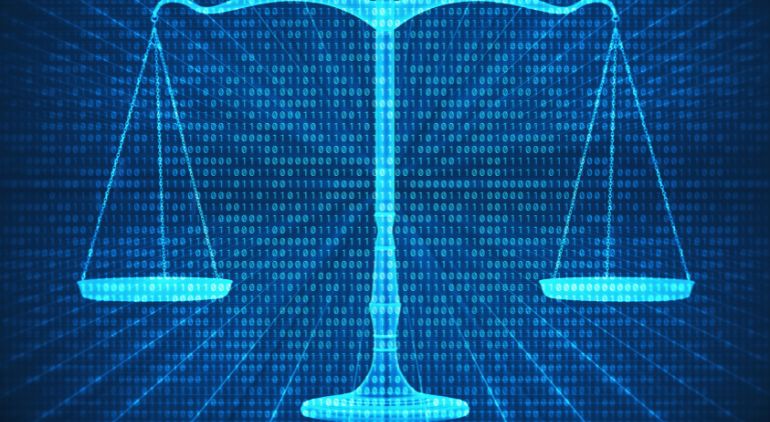405-458-5710
Confidentiality Guaranteed
405-458-5710
Confidentiality Guaranteed
You are Reading:
-
1 to 1 Risk Control & Investigations > Blog > Cyber Crime > Implications of the Draft UN Cybercrime Convention

Jun
Implications of the Draft UN Cybercrime Convention
What it means for Cybersecurity Investigations and Research
The draft UN Cybercrime Convention, currently under scrutiny, has raised significant concerns among cybersecurity experts and advocates. According to the Electronic Frontier Foundation (EFF), the convention, if not amended, could have far-reaching negative implications for cybersecurity investigations and research. This blog post explores these concerns, the potential impact on cybersecurity practices, and the broader implications for digital rights and privacy.
Overview of the Draft UN Cybercrime Convention
The draft UN Cybercrime Convention aims to establish international standards for combating cybercrime. However, the current draft has been criticized for its broad and vague definitions, which could criminalize legitimate cybersecurity research and investigations. The EFF and other digital rights organizations argue that the convention, in its current form, poses significant threats to privacy, freedom of expression, and the ability to conduct independent security research.
Key Concerns Raised by the EFF
The EFF has identified several key issues with the draft convention:
- Vague Definitions: The convention’s broad and ambiguous definitions of cybercrime could potentially criminalize a wide range of legitimate activities, including cybersecurity research and the use of privacy-enhancing technologies.
- Privacy and Free Expression: Provisions in the draft could undermine privacy and freedom of expression by enabling excessive surveillance and data collection without adequate safeguards.
- Impact on Security Research: The draft convention could discourage or criminalize security research, making it more difficult for researchers to identify and report vulnerabilities.
- Cross-Border Data Access: The convention includes provisions for cross-border data access, which could lead to abuses of power and violations of individuals’ rights to privacy and due process.
Implications for Cybersecurity Investigations
The draft UN Cybercrime Convention, if adopted without amendments, could significantly impact cybersecurity investigations in several ways:
Criminalization of Security Research
One of the most concerning aspects of the draft convention is the potential criminalization of legitimate security research. Security researchers play a crucial role in identifying and mitigating vulnerabilities that could be exploited by cybercriminals. The convention’s vague definitions of cybercrime could be interpreted to include activities such as vulnerability scanning, penetration testing, and reverse engineering—core practices in cybersecurity research.
Example: A security researcher conducting a vulnerability scan on a publicly accessible system could be accused of unauthorized access under the convention’s broad definitions. This could deter researchers from pursuing important investigations that enhance overall cybersecurity.
Inhibition of Vulnerability Disclosure
Vulnerability disclosure is a critical component of cybersecurity. It allows researchers to report discovered vulnerabilities to affected organizations so they can be addressed before malicious actors exploit them. The draft convention’s provisions could create legal risks for researchers, discouraging them from disclosing vulnerabilities.
Example: An ethical hacker who discovers a vulnerability in a widely used software application might hesitate to report it due to fear of legal repercussions. This could result in the vulnerability remaining unaddressed, leaving users at risk.
Increased Surveillance and Privacy Risks
The draft convention’s provisions for cross-border data access and surveillance could undermine privacy rights. Investigative practices that involve data collection and monitoring could be expanded, potentially leading to abuses and violations of privacy.
Example: Law enforcement agencies could gain broad powers to access personal data across borders without adequate judicial oversight. This could lead to mass surveillance and the infringement of individuals’ privacy rights.
Impact on Cybersecurity Research
Cybersecurity research is vital for advancing knowledge and developing new technologies to protect against cyber threats. The draft convention could hinder this research in several ways:
Deterrence of Academic and Independent Research
The threat of criminal liability could deter academics and independent researchers from engaging in cybersecurity research. Universities and research institutions might restrict or prohibit certain types of research to avoid legal risks.
Example: An academic researcher studying the security of IoT devices might be discouraged from conducting experiments that involve testing device vulnerabilities, limiting the advancement of knowledge in this critical area.
Restriction on the Use of Research Tools
Many cybersecurity research tools, such as network analyzers and penetration testing frameworks, could be classified as hacking tools under the draft convention. This could restrict researchers’ ability to use these tools for legitimate purposes.
Example: A cybersecurity professional using a tool like Metasploit for educational purposes or to test their own systems’ security might face legal challenges under the convention’s broad provisions.
Chilling Effect on Innovation
The legal uncertainties and potential risks associated with the draft convention could create a chilling effect on innovation in the cybersecurity field. Startups and tech companies might avoid developing new security solutions or conducting in-depth research due to fear of legal repercussions.
Example: A startup developing a new security solution that involves analyzing network traffic might abandon the project due to concerns about violating the convention’s provisions.
Broader Implications for Digital Rights and Privacy
Beyond cybersecurity investigations and research, the draft UN Cybercrime Convention could have broader implications for digital rights and privacy:
- Freedom of Expression: The convention’s provisions could be used to target individuals and organizations that criticize governments or engage in whistleblowing activities. This could stifle free speech and dissent.
- Data Protection: The increased data collection and surveillance enabled by the convention could undermine data protection efforts and compromise individuals’ control over their personal information.
- International Cooperation: The convention’s provisions for cross-border data access could lead to conflicts between countries with different legal standards for privacy and data protection.
Recommendations for Cybersecurity Leaders
Given the potential impact of the draft UN Cybercrime Convention, cybersecurity leaders should consider the following recommendations to navigate the challenges and advocate for necessary amendments:
- Advocacy and Awareness: Raise awareness about the potential implications of the draft convention among stakeholders, including policymakers, industry leaders, and the public. Advocate for amendments that protect cybersecurity research and digital rights.
- Collaboration: Collaborate with other organizations, industry groups, and digital rights advocates to develop and propose constructive amendments to the convention. Collective action can amplify the impact of advocacy efforts.
- Legal Guidance: Seek legal guidance to understand the potential risks and liabilities associated with the draft convention. Ensure that cybersecurity practices and research activities comply with existing laws and regulations.
- Ethical Standards: Promote ethical standards and best practices for cybersecurity research and investigations. Encourage transparency, accountability, and respect for privacy in all cybersecurity activities.
The draft UN Cybercrime Convention, in its current form, poses significant risks to cybersecurity investigations, research, and digital rights. By recognizing these challenges and advocating for necessary amendments, cybersecurity leaders can help shape a convention that effectively combats cybercrime while protecting privacy, freedom of expression, and the ability to conduct essential security research. Collaboration, awareness, and proactive engagement are key to ensuring that the convention supports a secure and open digital environment.
- AI
- Bug Sweeps
- Car Security
- Cyber Crime
- Cyber-Stalking
- Digital Forensics
- Fraud
- Geo-Political
- GPS Tracking
- Hidden Cameras
- Identity Theft
- Investigations
- Misinformation
- Mobile Device Forensics
- Mobile Device Security
- Operational Security
- Privacy
- Psychology
- Situational Awareness
- Social Media Investigations
- Stalking
- Surveillance
- Uncategorized
